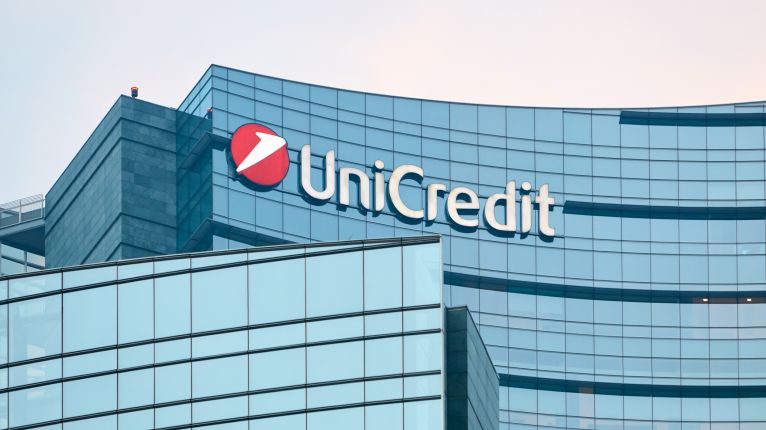The study was conducted between December 2021 and January 2022 on a sample of 177 local retail investors with exposure to companies listed on the Bucharest Stock Exchange, and it focused on their investment habits.
The study included a list of industries that, according to local retail investors, will have the best performance on the stock market in 2022. The first two places belong to IT&C (63%) and energy&utilities (62%). These are followed by the financial-banking sector (36%), medical services (29%), real estate (29%), pharmaceuticals (27%), and agriculture (16%). The least indicated sectors were industrial production and construction (12%), telecommunications (11%), retail (7%), and transport (4%). However, the perception of the best performing industries differs across generations. 70% of respondents aged 18-35 expect a good evolution of the IT&C field compared to 56% of investors over 45 years old. The situation is reversed regarding energy/utilities, where 80% of those over 45 believe that this sector will have a good evolution in 2022, compared to 51% of investors aged between 18 and 35 years old.
"The study results clearly show that investors have high expectations this year when it comes to the performance of IT&C and energy/utility companies. The IT&C was the star sector of the Bucharest Stock Exchange in 2021, with a record number of listings, all on the AeRO market. 2022 will be a test because we will see to what extent investors' expectations will match reality, and if the results that companies promised investors will be confirmed. On the other hand, almost equally as popular pick, energy & utilities has been a consistently included in the top performers in the past years and it is no surprise that they found their way on the top. We also see that the generation under the age of 35 seems to have a high appetite for a growth-type sector, which can offer higher gains. In contrast, those over the age of 45 tend to trust sectors that has proven over time to be stable and deliver consistent results. Considering that our study was conducted before the start of the war in Ukraine, it will be interesting to see in the next edition how investors' preferences will evolve, especially for defensive stocks," stated Ciprian Zamfirescu, MIA Marketing Partner.
In the study, investors indicated the criteria for choosing the companies in which they invest and the barriers to investment. When it comes to selecting the companies to invest in, the essential criteria indicated by the respondents is the evolution of the company's profitability, followed by the company's development plans, professional management, the reputation of the entrepreneur behind the business, and the financial results obtained by the company in the last three years. At the opposite end of the spectrum are the less important criteria as indicated by investors which are corporate governance, the age of the company's, and dividends distribution policy.
On the other hand, when asked about the barriers that stand in the way of investments in companies based on a predefined list of obstacles, 53% of respondents consider that the lack of growth prospects is the most significant barrier that would precludes them from investing in a company. The second most indicated barrier was distrust in the company's management (47%), followed by lack of belief in the entrepreneur behind the business (43%), substantial indebtedness of the company (38%), misunderstanding of the product/services offered by the company (36%), the fact that the company did not register a net profit (36%) and the lack of transparency from the company (36%). Less significant barriers include lack of well-implemented communication (29%), failure to achieve operational profitability (25%), never heard about the company (23%), lack of liquidity (19%), low free-float of 10% or less (15%), less than three years of existence (13%).
"Profitability, trust, great development and growth perspectives - these are the key characteristics that BVB investors are seeking for in issuers. At the same time, results indicate clearly that aspects such as corporate governance, stock price evolution, liquidity, free-float, or attractive dividend policy are of secondary importance to investors. In the next edition of the survey, we will see how the latest volatilities in the market impacted these preferences. As reported previously, we see divergencies between different generations - younger investors value significantly more the opportunities to engage directly with companies and bounce off ideas with other investors, practices less frequented by those above 45 years old. Nonetheless, what is reassuring is that a significant majority of respondents indicated that the decision to invest in a company is based primarily on the financial results and current reports published by the company, as well as information published in the media. This underlines the need for issuers to deploy additional efforts in communicating coherently but precisely with their stakeholders through the traditional channels," stated Zuzanna Kurek, founder, and CEO of Cornerstone Communications.
The study also looked at what information and advice retail investors consider when making their investment decisions. The most important for decision making are the companies' financial reports as 74% of investors indicated that they are important to a large and very large extent. Only 3 respondents indicated that financial results matter to a small and very small extent. The second most important for making the investment decisions are current reports, with 68% respondents stating that they matter to a large and very large extent.
The third most important factor when making the investment decision are the news published in the press, indicated by 46% of investors, followed by the broker's opinion, indicated by 42%. Asked how often they interact with their broker, 59% of respondents mentioned that they talk to a broker at least once every 2-3 months, 8% stated that they never interact with the broker and 13% interact less than once every 6 months.
The opinion of other investors matters to a large and very large extent for 36% of the respondents. Most of them, 42%, indicated that the opinion of other investors matters to some extent. The opinion of other investors matters to 43% of investors aged 18-35, and only to 23% of investors over the age of 45 in a large and very large extent. On the other hand, in the category of investors who trade weekly, 48% stated that they take into account the opinion of other investors to a large and very large extent. In the category of those who trade less than once a month, 30% mentioned that they value the opinion of other investors to a large and very large extent.
Investor events organized by a listed companies matter to some extent for 41% of investors, while for 35% matter to a large and very large extent. The events organized by the companies matter most for investors aged between 36 and 45, where 46% indicated that they matter to a large and very large extent in making investment decisions. On the other hand, 18% of investors over the age of 45 consider these events to be important, while in the category of those aged between 18 and 35, for 34% of them, the events matter to a large and very large extent.
The study conducted by MIA Marketing includes answers received from 177 retail investors who had capital invested on the Bucharest Stock Exchange at the time of the research. Among the respondents, 77 investors were between 18-35 years old, 61 were between 26-45 years old, and 39 were over 45 years old. In terms of their level of education, 88% of respondents have higher education. Regarding the occupation of the respondents, 67% of them are full-time employees, 2% are part-time, 13% are entrepreneurs, 9% are self-employed, 1% are students, and 8% indicated another occupation.
 Vlad Andriescu
Vlad Andriescu

















